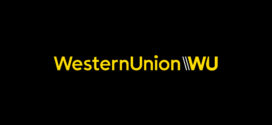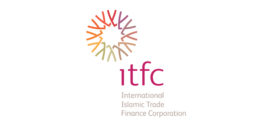
Bana Akkad Azhari, Head of Sales & Relationship Management MEA and the CIS, Treasury Services EMEA, BNY Mellon, discusses how fintech can transform the trade landscape in the Middle East.
Recent years have heralded a new, dynamic “fintech era”. Global investment has skyrocketed – reaching US$23.2 billion in 2016, up from US$12 billion in 2014[1]. Yet, the vast majority of fintech investment originates from other regions, with the Middle East only accountable for 0.1% of the global total in 2016. Furthermore, of the top 10 largest global fintech deals in the last quarter of 2016, half were focused within the payments industry[2].
Yet, spurred by the positive impacts of fintech in the payments space (particularly retail payments), attention is increasingly turning to the extensive – and largely untapped – opportunities elsewhere.
Crucially, fintech has the potential to bring about real change across the trade finance landscape. Moreover, with the promise of enhanced security, transparency and efficiency, the power of fintech to enact change in the Middle East specifically is hugely exciting – and increasingly being realised.
Trade in the Middle East
Undeniably, the Middle East trade landscape is being affected by a global economic slowdown, which has seen world trade grow slower than global GDP for the first time in 15 years. This trend is being compounded by a decline in the availability of trade finance in certain sectors and countries. The current global trade finance gap is US$1.6 trillion, and in the MENA/SSA (Middle East and North Africa/Sub-Saharan Africa) region, approximately a quarter of proposed transactions are rejected for finance [3].
For the most part, this is due to security concerns surrounding political and economic risk, and regulatory measures introduced to curb the detrimental effects of financial contagion. Indeed, 90% of banks surveyed by the Asian Development Bank cited regulations including Know Your Customer (KYC) and Anti-Money Laundering (AML) as significant impediments to the expansion of trade finance[4]. So, as a region more prone to risk, the Middle East has fallen victim somewhat to compliance measures and the associated “de-risking” undertaken by many global banks.
On top of this, the trade industry as a whole is both labour and document intensive. Global value chains involve many parties, and – as a result of division of labour – often stretch across many different countries and regions. Combined with the use of physical trade tools, this heightens the possibility for human error and fraud – such as multiple financing or money laundering. For value chains passing through the Middle East, it is no different.
Clearly, the Middle Eastern trade industry stands to benefit enormously from technological innovation as a means to mitigate risk, streamline processes and – by extension – bridge the trade finance gap in its emerging economies.
A means to change
One technology is already displaying substantial promise: blockchain. The distributed ledger technology that comprises bitcoin’s operating system is manifesting in many forms throughout the fintech world. Blockchain is cryptographically secure; recording and storing every step involved in every transaction irrevocably on a shared network, and without the requirement for maintenance or administration by a central authority.
So, if leveraged correctly, blockchain could help to mitigate risk-related concerns in trade and thereby reduce compliance-related de-risking. This could potentially attract more trade finance investment to the Middle East, as well as improving the speed and efficiency of global value chains passing through the region. In turn – given the importance of trade to economic wealth – the overall prosperity of the Middle East stands to be positively affected.
Certainly, the transformative capability of blockchain in the Middle East is not going unnoticed. The Dubai Future Foundation Initiative – in which the UAE promises to put all documents on blockchain by 2020 – was announced in 2016. Subsequently, the World Blockchain Forum 2017 – attended by the global blockchain community – took place at the Burj Al Arab in Dubai earlier this year.
Furthermore, Innovate Finance, the membership association for the UK’s fintech sector (including blockchain), has been actively supporting the Kingdom of Bahrain and the UAE’s fintech endeavours. By doing so, Innovate Finance is demonstrating to the world the huge scope of opportunity for fintech in the Middle East.
Overcoming barriers
While blockchain-focused innovation in the Middle East is certainly gathering momentum, when it comes to the application of blockchain and other innovation to trade finance, there are challenges to overcome.
A reluctance to change by some parties within the supply chain is one such barrier. In the Middle East in particular, many businesses are family-run and reluctant to deviate from their traditional business methodology and adopt new fintech offerings.
This can be all the more challenging for fintech companies that are developing new technologies and looking to introduce them to the Middle East market. Therefore, if fintechs are to make a significant impact on the future direction of the industry and produce noteworthy results for trade finance, collaboration with more established players is key.
With unrivalled levels of industry experience, regulatory knowledge, global client reach and working capital, banks can help fintechs to realise their potential. Such bank-fintech partnerships are, of course, mutually beneficial, with banks able to leverage fintechs’ digital expertise to explore solutions that offer value-added capabilities to their clients.
Banks driving innovation
Banks and fintechs are increasingly combining skillsets across the region, adopting various collaborative approaches, including venture capital-style investment and incubator/accelerator programmes. And with the number of new accelerators per year in the Middle East increasing by 800% from 2012 to 2015, the appetite for collaboration in the region is growing[5].
A number of banks in the Middle East are already exploring how blockchain developments could transform their offerings with regard to trading and settlement. For example, Emirates NBD recently completed trade finance transactions with Indian bank ICICI using blockchain technology leveraged from Infosys, a global fintech company and member of Innovate Finance[6].
Certainly, banks are increasingly investing in fintech opportunities and driving forward digital initiatives. And in this rapidly evolving world, it is important that the focus is on developments that are client-centric.
A key example of how this can be achieved is through the use of APIs (application programming interfaces). APIs are not only interfaces into software applications, they also link them together, and their flexibility and interoperability can help banks and clients to collaborate more effectively on new solutions and products. This approach can therefore help to encourage client buy-in of new developments and ensure the digital trade landscape evolves in line with client needs – streamlining processes and adding real value to the trade experience. Recognising the benefit of APIs, BNY Mellon has developed its own platform, NEXEN, which integrates solutions and data from BNY Mellon, select third-parties (including fintechs) and clients. At present over 100 APIs are available in the NEXEN API store.
By investing in fintech developments such as APIs, banks are fostering a collaborative environment, giving clients a voice, and emphasising the importance of innovative change across the Middle Eastern trade landscape.
Ultimately, with the promise of increased security, transparency, and efficiency, fintech has the potential to completely transform Middle Eastern trade finance. And while fintechs have the technology to impact change, by collaborating with both fintechs and clients, it is banks that can help to really drive a new, bold future for trade in the Middle East.
The views expressed herein are those of the author only and may not reflect the views of BNY Mellon. This does not constitute treasury services advice, or any other business or legal advice, and it should not be relied upon as such.
[1] http://www.reuters.com/article/japan-fintech-idUSL3N1GD1WM, https://www.accenture.com/gb-en/insight-future-fintech-banking
[3] https://www.adb.org/news/global-trade-finance-gap-reaches-16-trillion-smes-hardest-hit-adb
[4] https://www.adb.org/sites/default/files/publication/190631/trade-finance-gaps.pdf
[5] http://gust.com/global-accelerator-report-2015/
[6] http://uk.reuters.com/article/commodities-blockchain-idUKL5N1GM6HH & https://www.infosys.com/newsroom/features/Pages/joins-innovate-finance.aspx
 Cash And Trade Magazine For Cash and Trade professionals in the Middle East
Cash And Trade Magazine For Cash and Trade professionals in the Middle East




